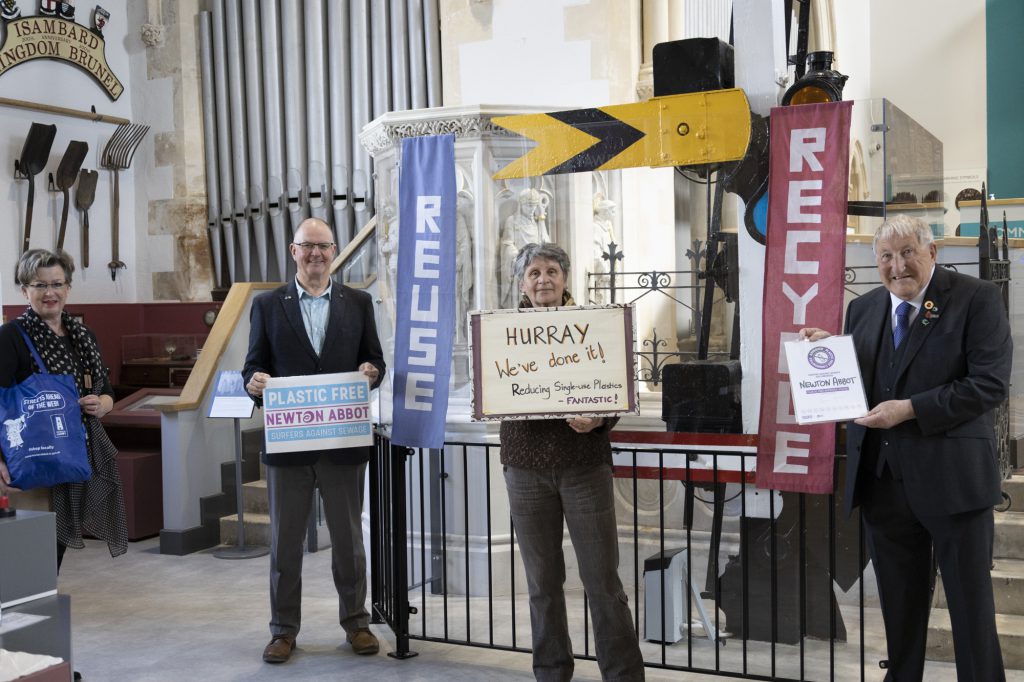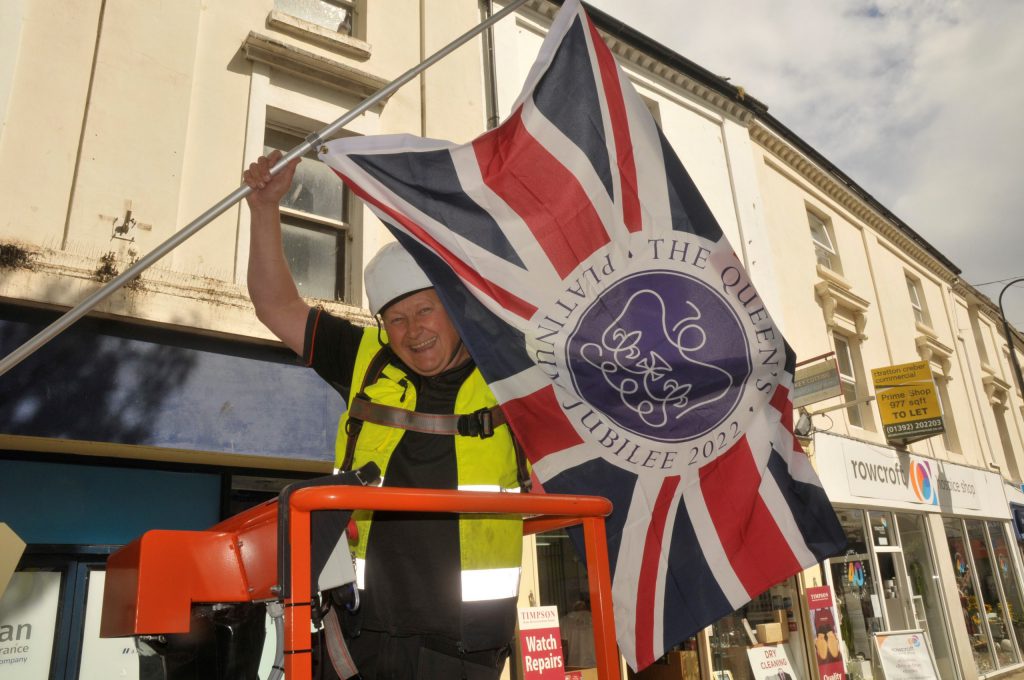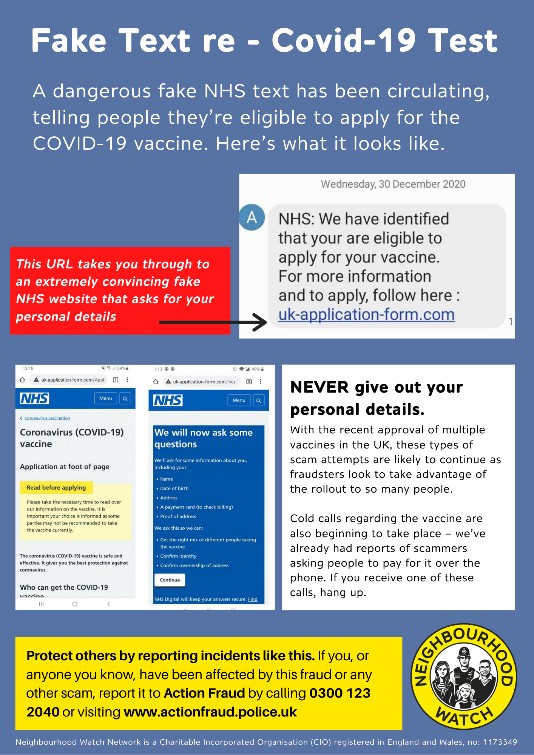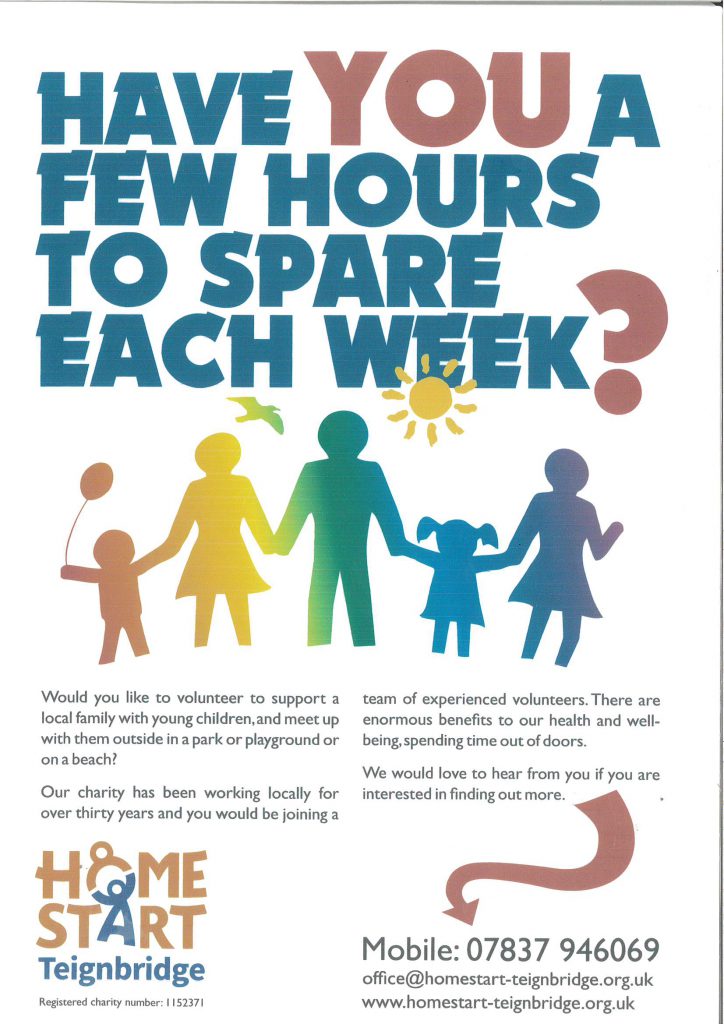
Newton Abbot Town Council News
Queen Street, Newton Abbot, Pedestrian Enhancements
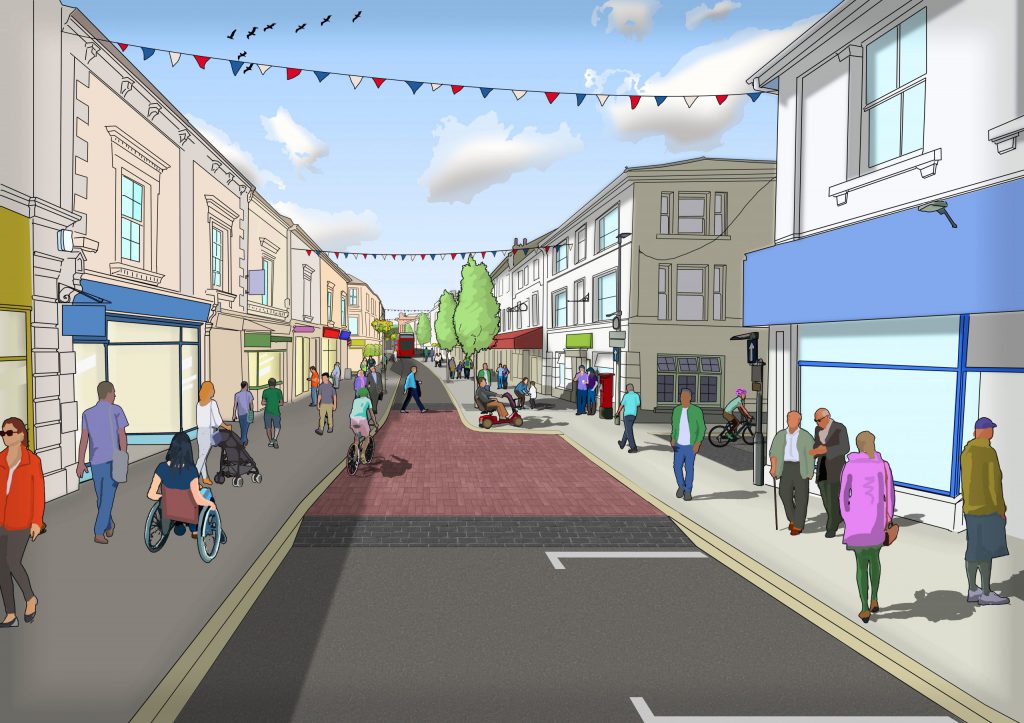
A public consultation was held between 29th April and 24th June 2022, in partnership with Teignbridge District Council (TDC), on plans for pedestrian enhancements to Queen Street, Newton Abbot. This consultation was to find out your views on the proposed changes.
Throughout the consultation, online events have taken place to allow you to speak to members of the project team. Online webinars have been held for the public and businesses where a presentation was given about the scheme; the presentation given was recorded and can be found here.
All information regarding the scheme can be found below. A Consultation Report has been published, summarising feedback received during the consultation.
Full steam ahead for Newton Abbot street clean!

STAFF at Newton Abbot Town Council have been hard at work giving the streets an early spring clean.
Maintenance engineers Harry and Les have been trying out their new Foamstream jet blaster, removing grime, chewing gum and weeds from the pavements in Courtenay Street.
The nifty piece of kit uses a mixture of steam and environmentally-safe chemicals to shift the muck that inevitably builds up in what is usually a busy town centre.
The transformation is quite remarkable with dirty grey walkways replaced in moments by bright, clean surfaces.
‘Thanks to lockdown the town centre is obviously much quieter than normal but when shoppers do return they will notice a fantastic improvement,’ said Town Clerk Phil Rowe.
‘We decided to invest in the Foamstream cleaner as we’re keen as a town council to make sure that Newton Abbot is an attractive destination not only for residents but people living elsewhere too.
‘We know from our research that people living in many nearby towns choose to shop in Newton Abbot and we intend to not only keep them coming in but to attract even more people too.
‘Having a clean and tidy street scene is an important part of our strategy, as will be our events programme that we intend to resume whenever the pandemic allows.
‘One particularly exciting project we’re still working on is a children’s street theatre event that will combine fantasy and history, right in the town centre.
‘We’ve plenty more up our sleeves too such as the return of our carnival and plenty more town centre entertainments.
‘Our essential shops remain open of course and we’d urge residents to keep using them, remembering at all times the ‘hands, face, space’ motto of course.
‘Life is far from normal right now but your town council promises to keep planning for the future and to make Newton Abbot a place to be proud of.’
Other parts of town are set to benefit from the Foamstream magic with ward members compiling a list of priority spots in need of attention.
A video of the cleaner in action can be seen here
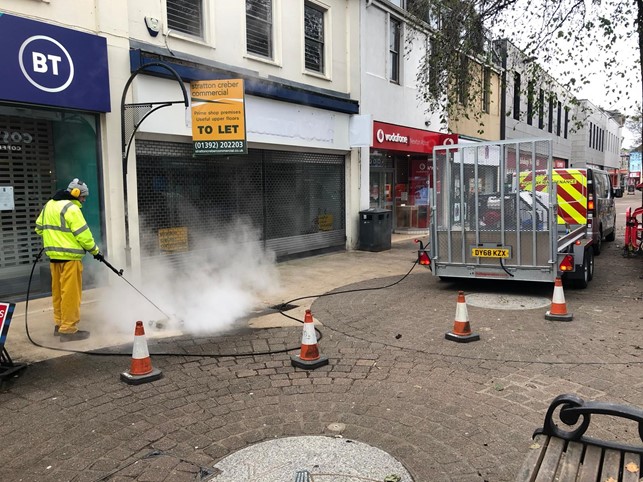
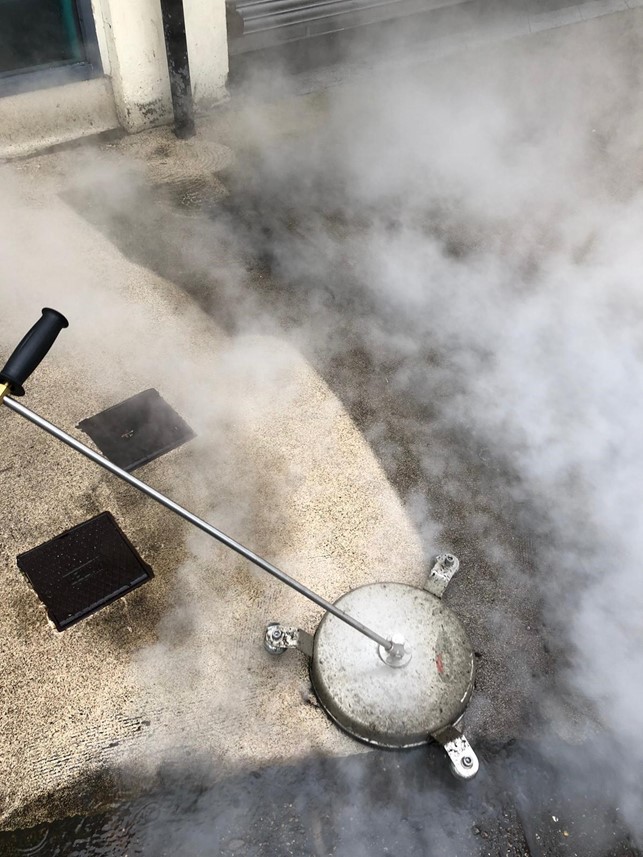
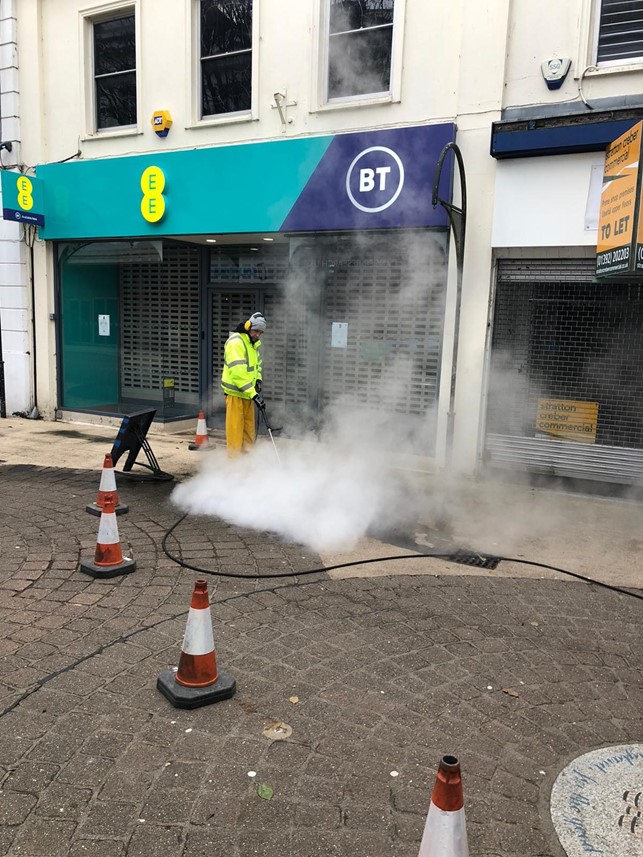
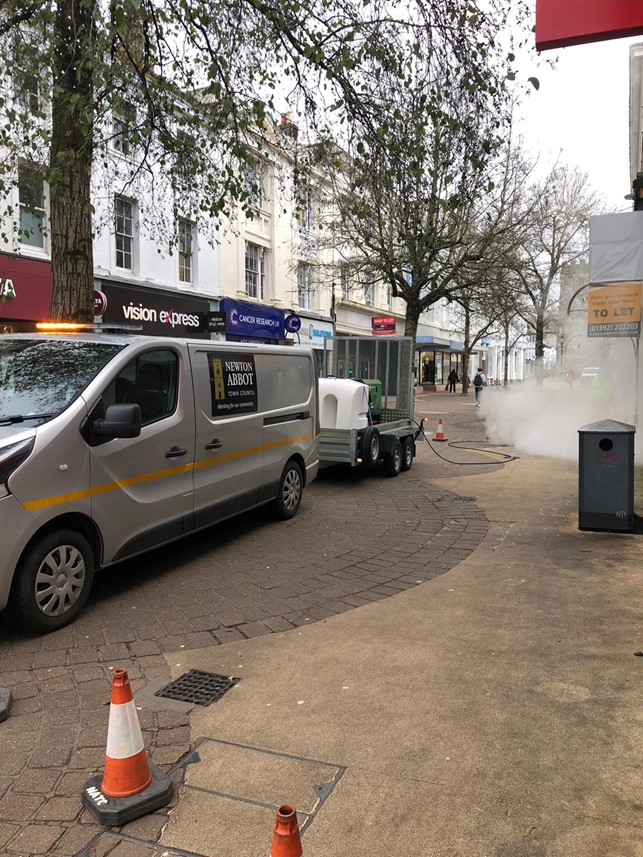
Avian Influenza (Bird Flu) – Latest Situation
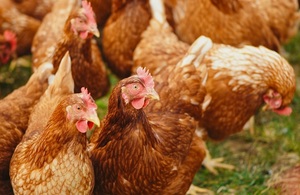
Avian influenza (bird flu): Latest situation
New housing measures will come into force in England, Scotland and Wales on 14 December.
https://www.gov.uk/government/news/avian-influenza-bird-flu-national-prevention-zone-declared
The Chief Veterinary Officers for England, Scotland and Wales have agreed to bring in new measures to help protect poultry and captive birds, following a number of cases of avian influenza in both wild and captive birds in the UK.
Government Chief Veterinary Officers are encouraging bird keepers to use the next 11 days to prepare for new housing measures, including taking steps to safeguard animal welfare, consult their vet and where necessary put up additional housing.
Whether you keep just a few birds as pets or thousands, from 14 December onwards you will be legally required to keep your birds indoors, or take appropriate steps to keep them separate from wild birds. We have not taken this decision lightly, but it is the best way to protect your birds from this highly infectious disease.
Poultry and captive bird keepers are advised to be vigilant for any signs of disease in their birds and any wild birds, and seek prompt advice from their vet if they have any concerns. They can help prevent avian flu by maintaining good biosecurity on their premises, including:
- housing or netting all poultry and captive birds
- cleansing and disinfecting clothing, footwear, equipment and vehicles before and after contact with poultry and captive birds – if practical, use disposable protective clothing
- reducing the movement of people, vehicles or equipment to and from areas where poultry and captive birds are kept, to minimise contamination from manure, slurry and other products, and using effective vermin control
- thoroughly cleaning and disinfecting housing at the end of a production cycle
- keeping fresh disinfectant at the right concentration at all points where people should use it, such as farm entrances and before entering poultry and captive bird housing or enclosures
- minimising direct and indirect contact between poultry and captive birds and wild birds, including making sure all feed and water is not accessible to wild birds
Register your birds
We encourage all keepers to register their birds with us so we can contact you quickly if there is a disease outbreak in your area and you need to take action.
If you have more than 50 birds, you are legally required to register your flock within one month of their arrival at your premises. If you have less than 50 birds, including pet birds, you are still strongly encouraged to register.
Find out how to register your birds.
Poultry and captive bird keepers and members of the public should report dead wild birds to the Defra helpline on 03459 33 55 77 (option 7), and keepers should report suspicion of disease to APHA on 03000 200 301. Keepers should familiarise themselves with our avian flu advice.
Public Health England advise the risk to public health from the H5N8 and H5N2 strains of bird flu is very low.
The Food Standards Agency has said that on the basis of the current scientific evidence, avian influenza poses a very low food safety risk for UK consumers. Properly cooked poultry and poultry products, including eggs, are safe to eat.
Our Facilities Maintenance Operatives have been busy spring cleaning Victoria Gardens this week. The results can be seen for themselves ?

If you have seen an area that would benefit from their magic please contact the Town Council Office 01626 201 120 or email [email protected]

